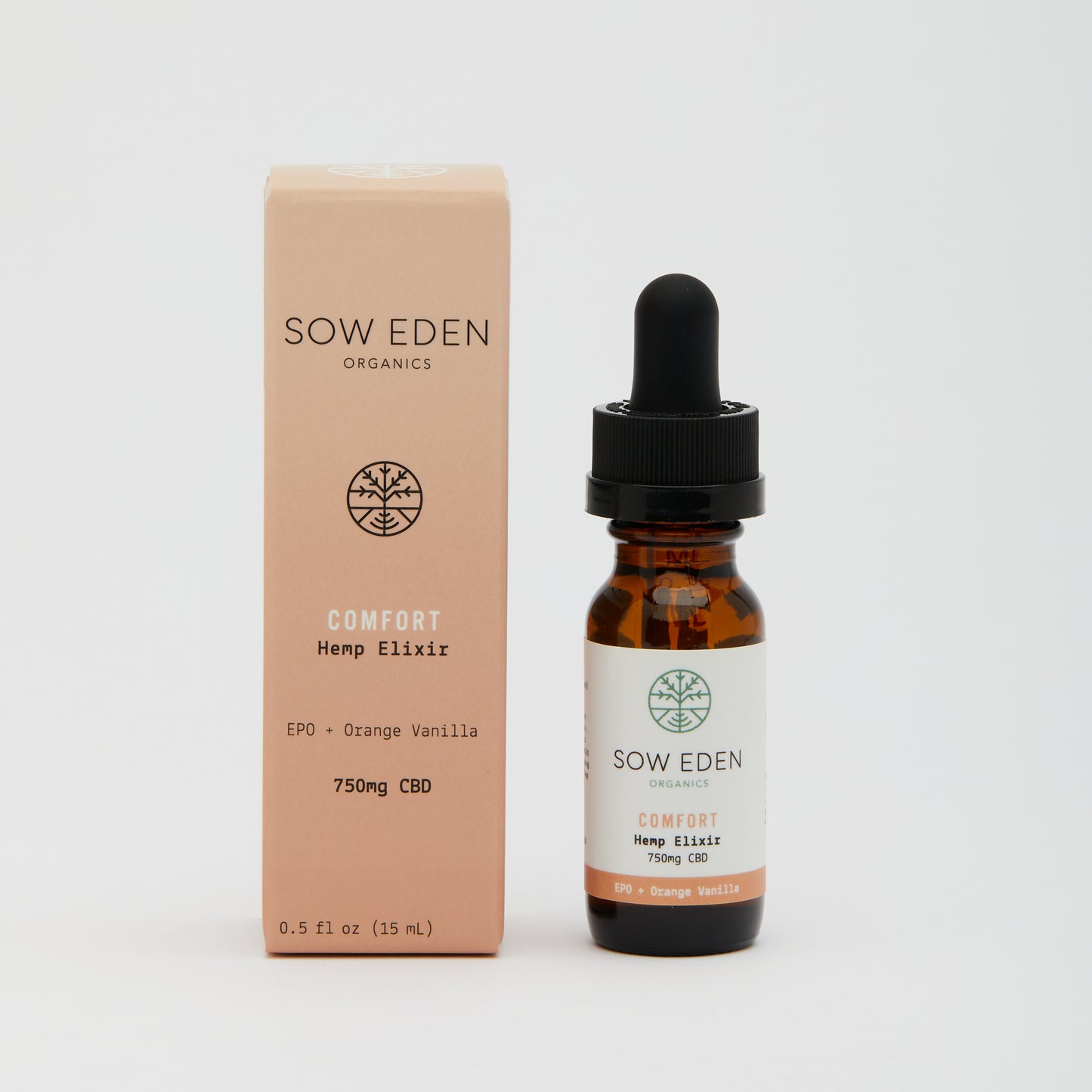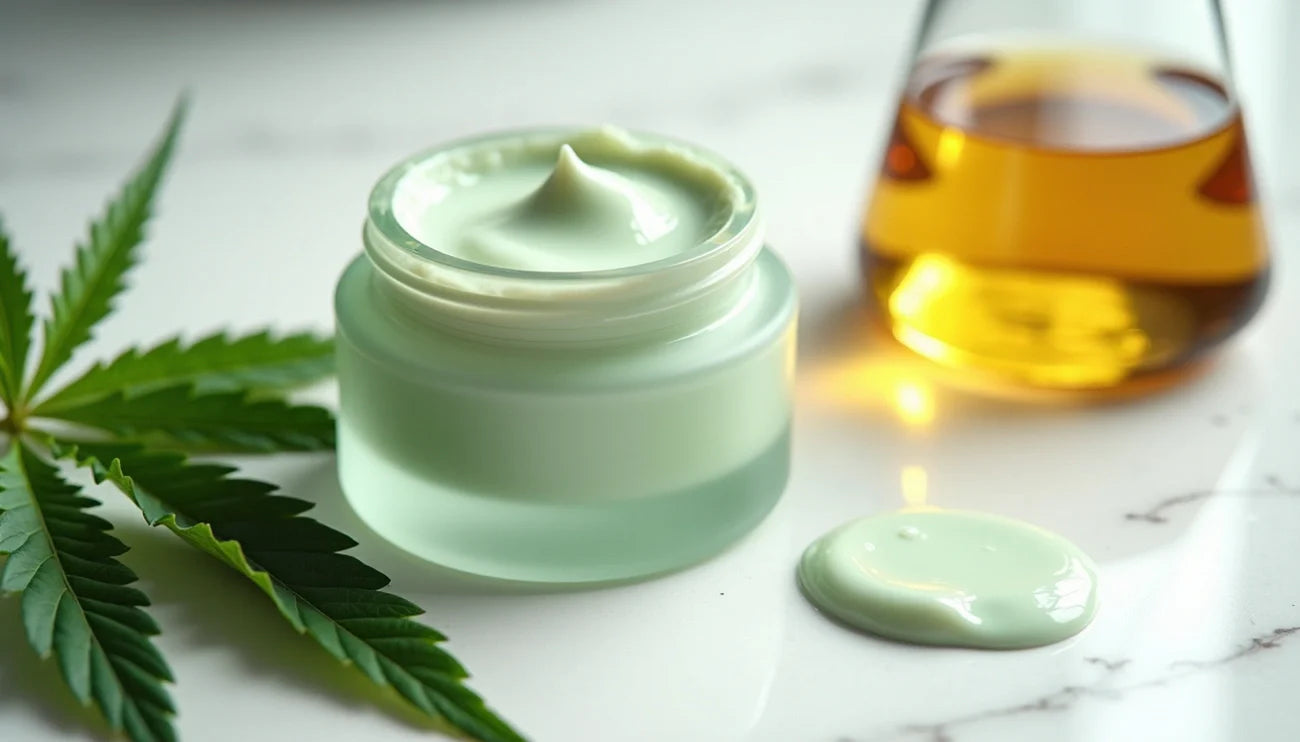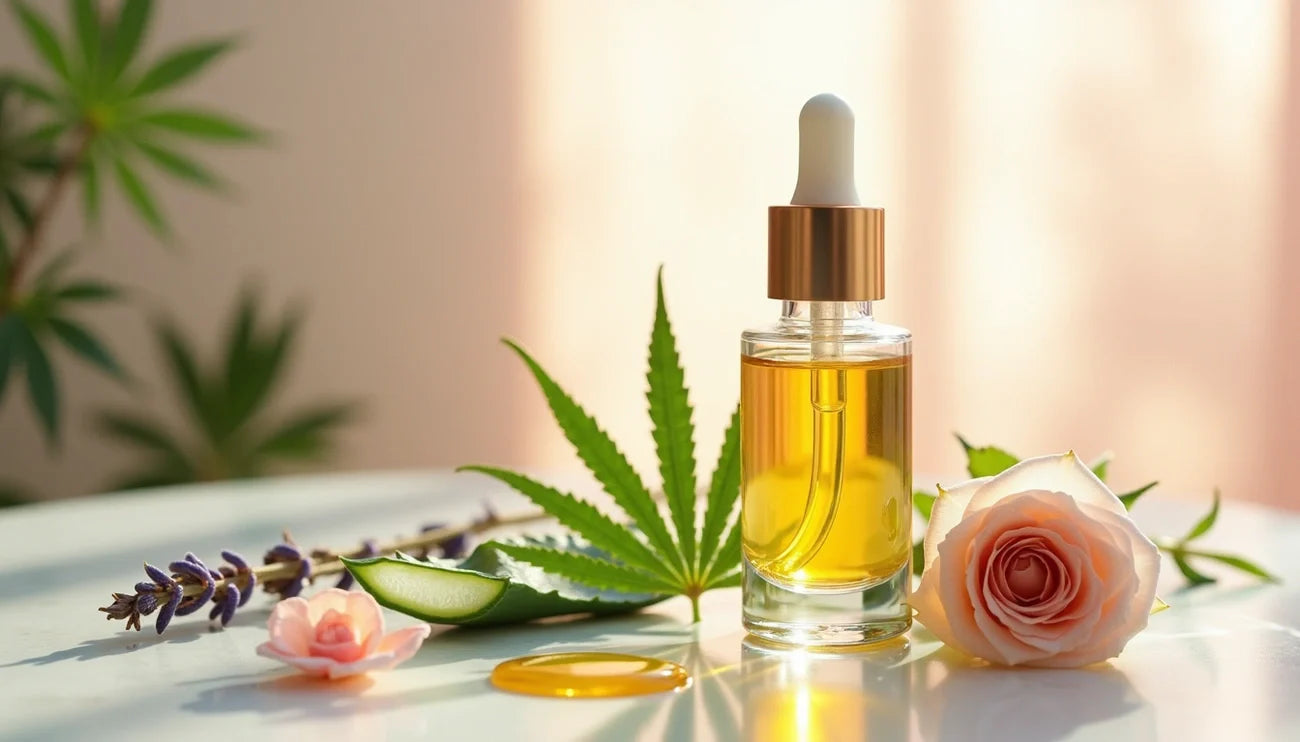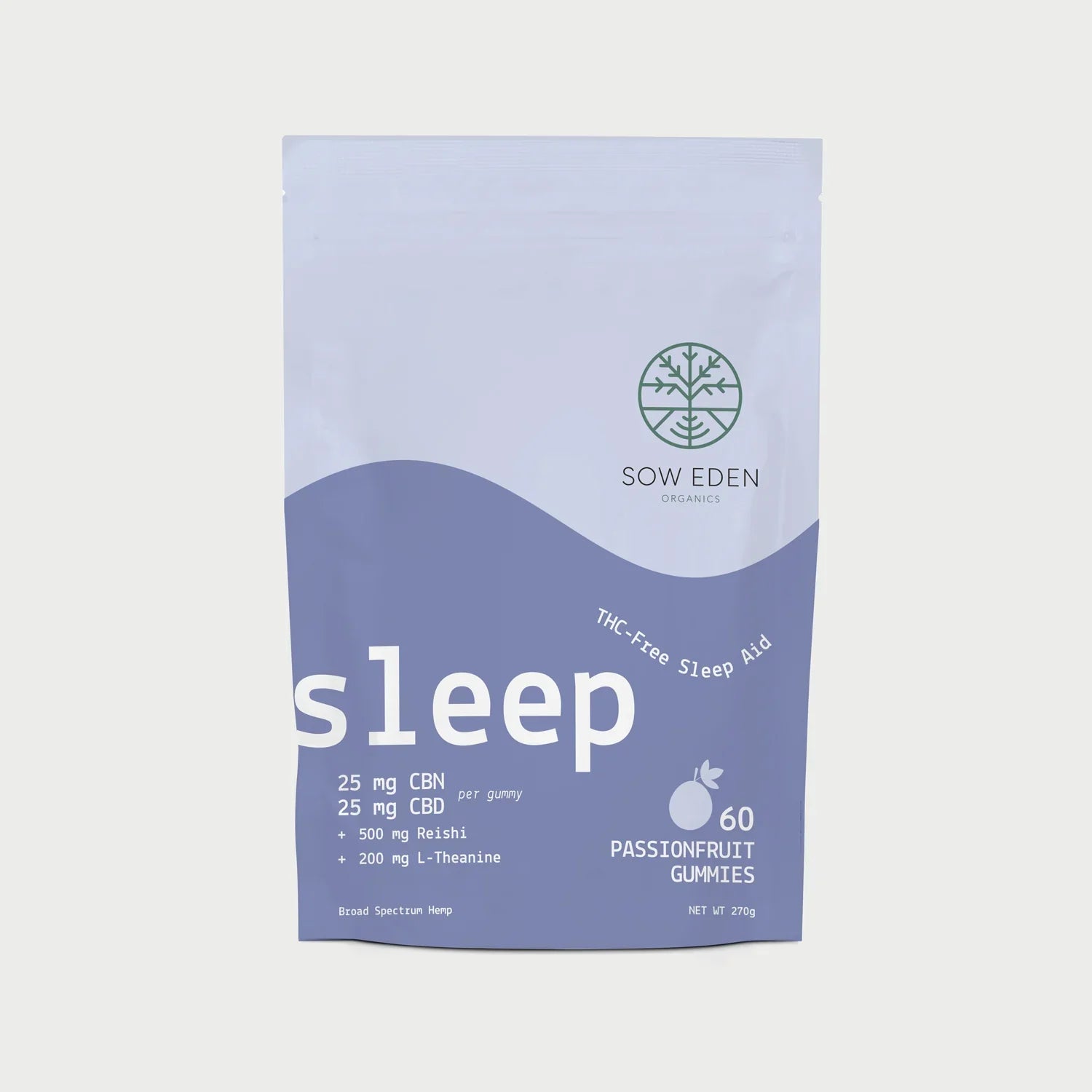If you're looking to understand what CBD tinctures are and how they differ from CBD oils, you've come to the right place. The terms "CBD oil" and "CBD tincture" are often used interchangeably, but they refer to different products with unique properties and uses.
Here's a quick answer for those in a hurry:
- CBD Oil: A blend of CBD extract and a carrier oil like MCT oil. Generally milder in taste, can be taken sublingually, orally, or applied topically.
- CBD Tincture: An alcohol-based extract of CBD from hemp. Often more potent in flavor, typically taken sublingually for faster absorption.
CBD, a compound from the cannabis plant, is popular for its potential health benefits, including relief from anxiety, pain, and sleep issues.
Understanding the differences between these two can help you choose the best product for your needs. Keep reading for a deeper look into each option.

Understanding CBD Tinctures
CBD tinctures are alcohol-based extracts of CBD from hemp. They use high-proof alcohol as a solvent to extract the natural compounds of the cannabis plant. This method helps preserve cannabinoids and protect against oxidation, ensuring a potent product.
Rapid Absorption
One of the standout features of CBD tinctures is their rapid absorption. When taken sublingually (under the tongue), the CBD quickly enters the bloodstream through the mucous membranes. This method bypasses the digestive system, leading to faster onset of effects. According to experts like Dr. Jassey, this makes tinctures a good option for those seeking immediate relief.
Flavor Additives
CBD tinctures often have a bitter flavor due to the alcohol content. To make them more palatable, companies add flavoring agents. These can include sweeteners, essential oils, or vegetable glycerin. However, it’s important to note that the FDA has stated CBD cannot be sold as a dietary supplement, so combining CBD with certain ingredients might go against FDA rulings.
Key Points
- Alcohol-based: Uses high-proof alcohol as a solvent.
- Rapid absorption: Fast onset of effects when taken sublingually.
- Flavor additives: Often include sweeteners or essential oils to mask bitterness.
CBD tinctures are a convenient and fast-acting way to consume CBD. However, they may not be suitable for everyone, especially those sensitive to alcohol.
Next, we'll explore CBD oils and how they differ from tinctures.
Exploring CBD Oils
When it comes to CBD oils, understanding their composition and uses can help you decide if they're the right choice for you. Let’s dive into the main aspects: carrier oils, sublingual use, and topical application.
Carrier Oils
CBD oils are made by blending CBD extract with a carrier oil. Common carrier oils include:
- Medium-Chain Triglyceride (MCT) Oil: Derived from coconuts, MCT oil is popular for its quick absorption and neutral taste.
- Hemp Seed Oil: Adds a nutty flavor and contains beneficial omega-3 and omega-6 fatty acids.
- Extra Virgin Olive Oil: Known for its rich flavor and antioxidant properties.
Carrier oils not only help in the absorption of CBD but also enhance the flavor and provide additional health benefits. For instance, MCT oil improves absorption and promotes a smooth flavor, making it a favorite among many users.
Sublingual Use
One of the most common ways to take CBD oil is sublingually (under the tongue). This method allows the CBD to be absorbed directly into the bloodstream through the mucous membranes, bypassing the digestive system.
Benefits of Sublingual Use:
- Quick Absorption: Effects can be felt within 15-45 minutes.
- Ease of Use: Simply place a few drops under your tongue and hold for 30-60 seconds before swallowing.
Topical Application
Unlike CBD tinctures, CBD oils can be used topically. This means you can apply them directly to your skin to target localized pain or skin conditions.
Benefits of Topical Use:
- Localized Relief: Ideal for muscle pain, joint aches, or skin issues like eczema and psoriasis.
- Non-Intoxicating: Provides therapeutic benefits without entering the bloodstream.
CBD oils offer versatility, allowing you to tailor your use to your specific needs. Whether you prefer quick absorption through sublingual use or targeted relief through topical application, CBD oils provide a flexible option for incorporating CBD into your wellness routine.
Next, we'll compare the benefits and drawbacks of CBD tinctures and oils to help you make an informed decision.
Comparing Benefits and Drawbacks
Benefits of CBD Tinctures
Rapid Onset: One of the standout advantages of CBD tinctures is their quick absorption. When taken sublingually (under the tongue), the CBD is absorbed directly into the bloodstream through the mucous membranes. This can provide faster relief compared to other methods that need to go through the digestive system.
Food and Beverage Compatibility: CBD tinctures can be easily mixed into your favorite foods and beverages. This makes them a versatile option for those who prefer not to take CBD directly or want to mask its taste. Just a few drops in your morning coffee or evening tea can make a big difference.
Benefits of CBD Oils
Versatility: CBD oils are incredibly versatile. They can be taken sublingually, added to foods and drinks, or even used topically. This flexibility allows you to choose the method that best suits your lifestyle and needs.
Minimal Ingredients: Most CBD oils contain very few ingredients, usually just the CBD extract and a carrier oil like MCT oil or hemp seed oil. This makes them a good option for those who are sensitive to additives or prefer a more natural product.
Topical Use: Unlike tinctures, CBD oils can be applied directly to the skin. This makes them useful for localized relief of muscle pain, joint aches, or skin conditions like eczema.
Drawbacks of CBD Tinctures
Bitter Taste: One major downside of CBD tinctures is their bitter taste. The alcohol used in tinctures can leave an unpleasant flavor, which is why many products include sweeteners or flavorings to mask it.
Limited Availability: CBD tinctures are not as readily available as oils. Many products labeled as tinctures are actually oils, so it's important to check the ingredient list or ask the retailer for clarification.
Drawbacks of CBD Oils
Strong Flavor: While CBD oils generally have a milder taste than tinctures, some people still find the flavor strong and off-putting. This can be especially true for oils that use hemp seed oil as a carrier.
Higher Cost: CBD oils often come with a higher price tag compared to other forms of CBD. This can be a barrier for those looking to use CBD regularly, especially if you're on a tight budget.
Next, we'll explore how to use CBD tinctures and oils effectively to maximize their benefits.
How to Use CBD Tinctures and Oils
Sublingual Administration
One of the most common and effective ways to use CBD tinctures and CBD oils is through sublingual administration. This means placing the drops under your tongue.
Why sublingual? The area under your tongue is rich with blood vessels, allowing for quick absorption directly into your bloodstream. This method bypasses your digestive system, meaning you’ll feel effects faster—often within 15 to 45 minutes.
How to do it:
- Shake the bottle well.
- Use the dropper to place the desired amount under your tongue.
- Hold the liquid there for about 60 seconds before swallowing.
Food Integration
If you find the taste of CBD tinctures or oils too strong, mixing them with food or beverages is a great alternative. This method is popular because it masks the taste and makes it easier to consume, especially if you’re new to CBD.
How to integrate:
- Add to beverages: Mix your CBD tincture or oil into smoothies, coffee, or tea.
- Incorporate into meals: Drizzle over salads, mix into sauces, or add to baked goods.
Note: When CBD is ingested through food, it must go through your digestive system, so it might take longer to feel the effects—usually 1 to 2 hours.
Dosage Precision
Getting the right dosage is crucial for maximizing the benefits of CBD tinctures and CBD oils. Since everyone’s body reacts differently to CBD, finding your perfect dose may require some experimentation.
General guidelines:
- Start small: Begin with a low dose, such as 5-10 mg, and gradually increase it.
- Monitor effects: Keep track of how you feel after each dose.
- Adjust as needed: If you don’t feel the desired effects after a few days, increase your dose by small increments until you find what works for you.
Precision tools:
- Droppers: Most CBD products come with a dropper marked with measurements, making it easy to control your dose.
- Dosage calculators: Some brands offer calculators to help you determine the right amount based on factors like weight and desired effects.
Next, we'll dive into frequently asked questions about CBD tinctures to clear up any lingering doubts.
Frequently Asked Questions about CBD Tinctures
Is CBD Tincture the Same as CBD Oil?
No, CBD tinctures and CBD oils are not the same, though they are often confused.
CBD tinctures use alcohol as a base to extract and preserve the natural compounds of the cannabis plant. This alcohol-based solution can have a bitter taste, which is often masked with additives like sweeteners or flavorings.
CBD oils, on the other hand, use a carrier oil like coconut or hemp seed oil. They are generally milder in taste and can be used both sublingually and topically.
For clarity, always check the ingredient list or ask for an "alcohol-based tincture" if that's what you prefer.
How Long Does It Take for Effects to Kick In?
The onset time for CBD tinctures can vary based on how you use them.
Sublingual Use: When taken under the tongue, CBD tinctures are absorbed through the mucous membranes, allowing for faster effects—typically within 15 minutes to an hour.
Oral Ingestion: If you mix CBD tinctures into food or drinks, the onset time can be slower, taking 1 to 2 hours as it needs to pass through the digestive system.
Note: Everyone's body is different, so the time frame can vary. Factors like metabolism, diet, and individual tolerance all play a role.
Can I Use CBD Tinctures Topically?
No, CBD tinctures are not designed for topical use.
While CBD oils can be applied to the skin, tinctures are meant for sublingual or oral ingestion. The alcohol base in tinctures is not suitable for topical application and may irritate the skin.
If you're looking for relief from localized pain or skin conditions, opt for CBD-infused lotions, creams, or salves instead.
Next, we'll guide you on how to choose the right product for your needs, considering personal preferences and any allergic considerations.
Choosing the Right Product for Your Needs
When it comes to CBD tinctures and CBD oils, picking the right one depends on a few key factors: your personal preferences, any allergic considerations, and whether you want to avoid alcohol.
Personal Preferences
Your lifestyle and taste preferences play a big role in deciding between CBD tinctures and CBD oils.
- Taste: CBD tinctures often have a bitter flavor due to their alcohol base. If you prefer a milder taste, CBD oils might be a better choice. They usually come in various flavors and are easier on the palate.
- Onset Time: If you need quick relief, CBD tinctures are absorbed rapidly when taken sublingually. This makes them ideal for those seeking immediate effects.
- Versatility: CBD oils are more versatile. They can be added to foods and beverages or even used topically, unlike tinctures, which are limited to oral or sublingual use.
Allergic Considerations
Allergies can also influence your decision.
- Oil Allergies: Some CBD oils use coconut oil or other carrier oils that might cause allergic reactions. If you have such allergies, an alcohol-based tincture can be a safer option.
- Additives: CBD tinctures often contain additives like sweeteners or flavorings to mask the bitter taste. Be sure to check the ingredient list for any potential allergens.
Avoidance of Alcohol
Whether for medical, religious, or personal reasons, avoiding alcohol is a common concern.
- Alcohol Content: CBD tinctures are alcohol-based, which might not be suitable for everyone. If you need to avoid alcohol, CBD oils are a better fit since they use carrier oils like MCT or hemp seed oil.
- Regulations: It's worth noting that combining CBD with certain supplements or vitamins might go against FDA rulings, especially in tinctures. Always check the product label and consult with a healthcare provider if you're unsure.
By considering these factors, you can make a more informed choice between CBD tinctures and CBD oils. Next, let's dive into some frequently asked questions to clear up any lingering doubts.
Sow Eden, A Holistic Wellness Approach
When it comes to choosing between CBD tinctures and CBD oils, it’s essential to consider your personal needs and preferences. Both forms offer unique advantages and can be valuable additions to your wellness routine.
At Sow Eden, we focus on providing high-quality, organic CBD products that support your overall well-being. Our tinctures are formulated with the highest-quality ingredients, including organic essential oils and carrier oils like MCT and extra virgin olive oil. This ensures a smooth flavor and better absorption.
Our commitment to organic CBD means you can trust that our products are free from harmful chemicals and pesticides. This dedication to purity and quality helps you maintain a healthy lifestyle without compromising on safety or effectiveness.
Whether you’re looking for rapid relief with CBD tinctures or the versatility of CBD oils, Sow Eden has you covered. Our products are designed to support balance in your sleep patterns, aid post-workout recovery, and help maintain focus throughout your day.
Explore our range of premium organic CBD products and find the perfect fit for your wellness journey. Shop now and discover the benefits of organic CBD with Sow Eden.
By understanding the differences between CBD tinctures and oils, and considering your unique needs, you can make an informed decision that enhances your wellness routine. Always consult with a healthcare professional before incorporating new supplements into your regimen.




